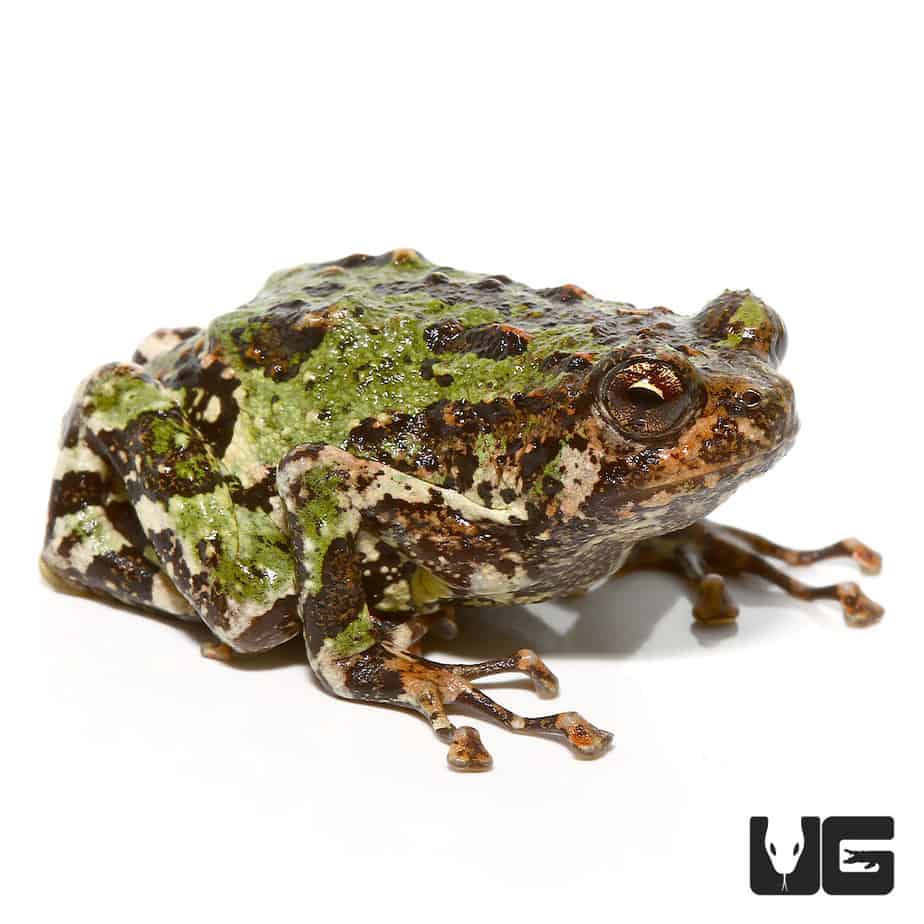Locate Your Perfect Rain Frog for Sale: Study the Globe of Unique Amphibians!
Locate Your Perfect Rain Frog for Sale: Study the Globe of Unique Amphibians!
Blog Article
Common Health Issues in Reptiles: Symptoms and Solutions
In the intricate globe of reptile care, comprehending the common health problems that may affect these one-of-a-kind animals is extremely important in guaranteeing their wellness. From respiratory system infections that can calmly hold to metabolic bone diseases that can debilitate, reptiles are at risk to a series of disorders that call for eager observation and prompt treatment. Whether it's coming to grips with parasitic problems, navigating dehydration worries, or attending to skin ailments that show up in refined ways, being in harmony with the signs and symptoms and outfitted with the expertise of effective solutions is essential for any kind of reptile owner. By delving additionally into the subtleties of these health and wellness issues and checking out the practical solutions offered, one can guard the health and wellness and vigor of these fascinating animals.
Breathing Infections
Respiratory system infections in reptiles can significantly affect their general wellness and call for punctual focus from experienced veterinarians. These infections are typically brought on by fungi, viruses, or bacteria and can materialize with signs such as wheezing, nasal discharge, open-mouth breathing, and lethargy. In reptiles, respiratory infections can be particularly challenging to detect and deal with as a result of their one-of-a-kind makeup and physiology. Vets often count on a mix of physical exams, analysis imaging, and lab tests to accurately identify the underlying reason for the infection.
Treatment for respiratory system infections in reptiles commonly includes a combination of encouraging treatment, such as keeping proper humidity levels and temperature slopes in the room, as well as targeted drug to deal with the specific virus accountable for the infection. It is important for reptile owners to check their animals very closely for any indicators of breathing distress and look for veterinary treatment at the earliest indication of an issue. With prompt intervention and ideal treatment, lots of reptiles can recover completely from respiratory infections and return to normal tasks.

Metabolic Bone Illness
What factors contribute to the development of Metabolic Bone Disease in reptiles?
Metabolic Bone Disease (MBD) in reptiles is mainly triggered by a lack of appropriate calcium, phosphorus, and vitamin D3 degrees in their diet plan. Additionally, inadequate exposure to UVB light avoids reptiles from synthesizing vitamin D3, which is important for calcium absorption and bone wellness.
Various other adding factors to MBD include incorrect temperature gradients within the reptile's environment, bring about lowered metabolic rate and impaired calcium absorption. Insufficient humidity degrees can likewise affect a reptile's capability to metabolize calcium efficiently. Certain reptile varieties have certain dietary requirements that, if not fulfilled, can boost the possibility of developing MBD. Normal veterinary check-ups, appropriate husbandry methods, and a balanced diet regimen are vital to avoid Metabolic Bone Condition in reptiles.
Parasitic Infestations
Parasitical invasions pose a substantial wellness danger to reptiles, affecting their total well-being and needing prompt vet focus. Reptiles can be influenced by different bloodsuckers, including termites, ticks, interior worms, and protozoa. These parasites can create a variety of signs, such as fat burning, lethargy, skin irritability, looseness of the bowels, and even fatality if left untreated.
One typical bloodsucker found in reptiles is the mite, which can trigger skin stress, anemia, and inflammation. Ticks are an additional outside parasite that can create and send diseases discomfort to the reptile. Internal parasites like worms and protozoa can result in digestive system issues, poor nutrition, and compromise the reptile's body immune system.
To detect a parasitical infestation, a veterinarian may carry out fecal examinations, skin scrapings, or blood tests. Therapy typically involves deworming medicines, antiparasitic bathrooms, or in serious situations, a hospital stay. Preventative actions such as normal vet examinations, appropriate health, and quarantine procedures for new reptiles can help minimize the threat of parasitical invasions and make sure the wellness of reptile animals.
Dehydration and Hydration Issues
Dehydration in reptiles can substantially impact their wellness and well-being, demanding timely treatment and suitable hydration monitoring. If left neglected, dehydration can lead to serious health and wellness issues and also be deadly to the reptile.
To protect against dehydration, reptile owners should make certain that their animals have access to clean water in all times. The water meal need to be large sufficient for the reptile to soak in if required, especially for varieties that absorb water with their skin. In addition, maintaining appropriate click for source moisture levels in the reptile's room and providing routine bathrooms can help avoid dehydration.
In instances of dehydration, it is important to look for vet care quickly. A vet might administer fluids either by mouth or via shots to rehydrate the reptile. It is vital to attend to the underlying reason for dehydration to stop reappearance and make sure the reptile's total health.
Skin Disorders

Final Thought

Respiratory system infections in reptiles can substantially affect their overall wellness and need punctual attention from experienced vets (rain frog for sale). Preventative steps such as regular veterinary exams, appropriate health, and quarantine procedures for new reptiles can aid reduce the threat of parasitic invasions and guarantee the health of reptile animals
If left untreated, dehydration can lead to major health concerns and even be fatal to the reptile.
Regularly examining your reptile for any kind of modifications in skin structure, look, or shade can help in very early discovery and treatment of skin ailments, advertising the total health and wellness why not look here of your flaky buddy. - rain frog for sale
In conclusion, reptiles are susceptible to different wellness issues such as respiratory infections, metabolic bone illness, parasitic invasions, dehydration, and skin conditions.
Report this page